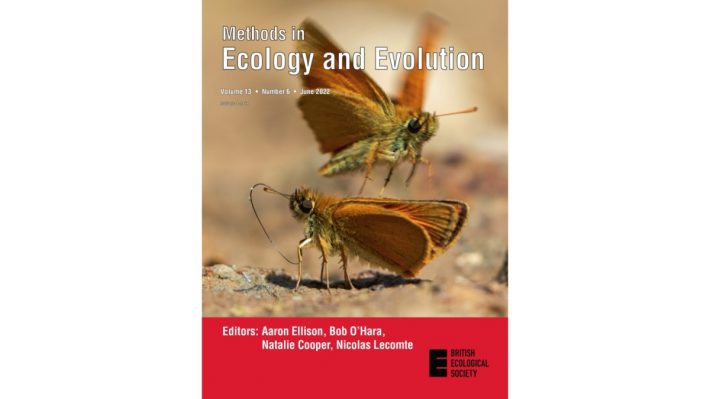Methods in Ecology and Evolution to become a fully open access journal
The British Ecological Society has today announced that one of its youngest journals, Methods in Ecology and Evolution, will become a fully open access publication from January 2023.

Methods in Ecology and Evolution (MEE) publishes methodological papers in all areas of ecology and evolutionary biology, including statistical, analytical, field and lab methods.
Until now, researchers could access most of the research published in MEE only through institutional subscriptions. Authors could also opt to publish their research openly by paying an article processing charge (APC). This ’hybrid’ approach led to inequities in access and publication that will be reduced when MEE becomes a fully open access journal.
All papers submitted to the journal from 6 July 2022 will be open access on publication. From 1 January 2023 the paywall will be removed from all existing content too. The scientific review process for research submitted to the journal will not change. Waiver requests are handled by the journal’s editorial office staff, with no input from academic editors, so as to ensure clear editorial independence.
Aaron Ellison, Executive Editor of MEE, said, “Ecological and evolutionary research improves when it uses the best methods. We want everyone around the world who is designing their next set of experiments to be able to access the new and improved methodologies published in MEE without payment, particularly if the development of the methods has been publicly funded. We also want our authors to benefit from anyone, anywhere being able to access their research.”
Hazel Norman, Chief Executive of the British Ecological Society (BES), said, “The open access movement has accelerated recently with some of the world’s largest research funders mandating that their funded research be published only in fully open access journals. As an organisation we believe in and promote open science, we agree with this shift to open access, and we want to be engaged in that change.”
MEE is a good candidate for transferring to open access, with a healthy and high-quality submission rate and an author base that is supportive of open access publishing. As one of the youngest BES journals and with fewer paid subscriptions than other BES journals, the impact of open access publishing will also benefit comparatively more readers.
Andrea Baier, Director of Publishing at the BES, said, “48% of papers published in the journal are already published open access. and we are confident that most potential authors will have access to a source of funding for APCs, such as institutional or departmental funds, grant funding or transformational read-and-publish arrangements.”
Corresponding authors unable to cover the cost of the APC through these routes may be able to access a waiver under the Research4Life programme, through which researchers from the most resource-poor nations receive a full or 50% APC waiver. This scheme is supported by Wiley, the journal’s publisher.
Anyone not covered by these programmes can apply for a full waiver of the APC from the journal either in advance of, or upon, submission.
APCs for research articles and reviews will be £2,650/US$3,500/€2,950, and £2000/US$2,600/€2,200 for applications papers, practical tools and perspective articles.
BES members will receive a 20% discount on APCs. That’s a saving of £530 on the APC for research articles.
For any media enquiries, contact: press@britishecologicalsociety.org
Like what we stand for?
Support our mission and help develop the next generation of ecologists by donating to the British Ecological Society.